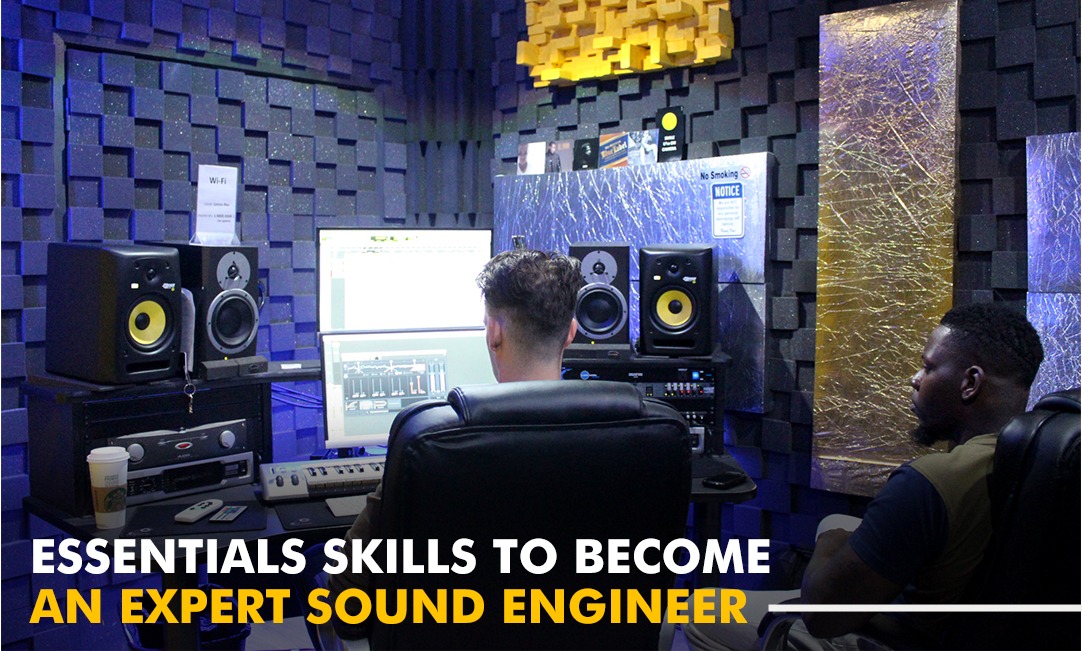Essentials skills to become an expert sound engineer

Sound engineering could be a great career prospect for all the creative techie minds out there! This is one of those careers which holds the capacity to satisfy people’s creative needs, aligning them into a perfect blend with technology and audio. Undoubtedly it is becoming one of the most rewarding career options for one to consider. Despite its growing popularity, a lot of people still don’t know much about this career and other very important questions associated with sound engineering.
Well, hang in there! UNION Recording Studio is at your rescue! We will provide you with some amazing tips and essential skills which could help you understand your area of interest better and could possibly help you pave your way into this amazing career!
Who is a sound engineer?
All the technical sides of performance, be it a life or a pre-recorded performance, a sound engineer is a person who’s responsible for all the technicalities associated with the sounds and audios. While audio engineering is considered to be a step in becoming a sound engineer, a sound engineer always contributes more towards the success of any project. Hence Spending time as an audio engineer can make one gain necessary and practical experience in acing their role as a sound engineer.
What does a sound engineer do?
A part of sound engineering includes recording but that’s not all that a professional does. A sound engineer is responsible for mixing, editing, and mastering the tracks so they produce the best possible outcome aligning with the performer’s vision. The skills required for any sound engineer to becoming an expert in their field are however quite different from whatever mentioned above. These skills would help you prepare yourself mentally before opting for sound engineering as your career.
SKILL 1:- COMMUNICATION: Not only in this profession but communication remains one of the most demanding and essential skills in almost every career available in the market. A sound engineer works for multiple professionals including performing artists, audio techs, stage managers, producers, directors, etc. Having an open positive channel of communication will not only help ease the task to work with such wide arrays of professionals for a sound engineer but can create a friendly, happy work environment.
SKILL 2:- FLEXIBILITY: Due to the high variety of changes being flexible is a must-required skill a sound engineer must possess. Having an open mind and staying open to changes would help a sound engineer to ease the burden of work on them and act flexibly during live shows.
SKILL 3: TEAMWORK: A sound engineer must be able to lead a team to deliver a successful outcome and act with the utmost professionalism with their colleagues and work partners. Teamwork should be such that each person must work towards the achievement of a common goal and the sound engineer must be able to delegate the work among his subordinates.
SKILL 4: ORGANIZATION: An expert sound engineer must be prepared for the challenges of any live show. A successful sound engineer will keep a deadline for everything, declutter regularly, and keep only what is required at a live show without jumbling of products.
SKILL 5: CONTINUOUS LEARNING: Learning regularly and researching new audios and acoustic discoveries is a mandatory skill required for a sound engineer. Because of many discoveries and to keep up with the changing tastes of people. To come up with new ideas a sound engineer must consistently even look at the past live productions to gain inspiration for their current projects.
Conclusion:
These skills and qualities are crucial for any sound engineer to become an expert in their domain however, even if you don’t possess all of the above-mentioned skills there’s still much more scope for one to opt for a career in this profession. One can always learn a lot and gain hands-on experience by working as a professional sound engineer.